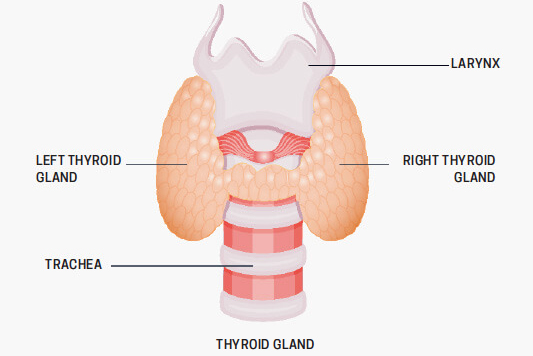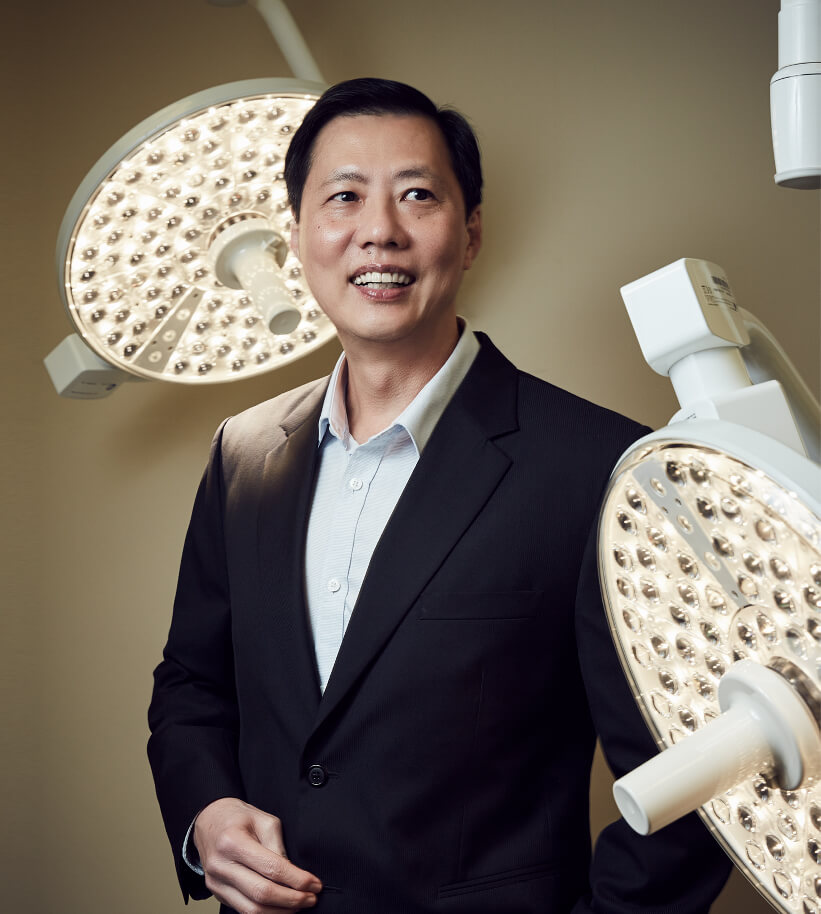
The thyroid is a gland located at the front of the neck and secretes a hormone that controls the way the body utilises energy and heat; maintaining the normal functions of the brain, heart, muscles and organs.
Nodules, however, can develop in the thyroid, especially with age, causing it to become enlarged. This leads to conditions like multinodular goitres, which can present as lumps in the neck.
In other thyroid conditions like hyperthyroidism, there may be a variety of signs and symptoms such as weight loss, nervousness, irritability, intolerance to heat, excessive sweating, hand tremors, palpitations and muscle weakness. Bulging eyes and even double vision can occur. Professor Christopher Goh, a Ear, Nose & Throat (ENT) specialist who sub-specialises in head and neck surgery, has treated a variety of thyroid problems in over 20 years of practice. He is a Senior Consultant at Novena ENT Head & Neck Surgery Centre, as well as Visiting Consultant to Singapore General Hospital (SGH) and the National Cancer Centre (NCC).

But it can be difficult to tell if a thyroid tumour is benign or malignant, especially when some lumps are small and painless. “A thyroid lump might be cancerous if it continues to grow and if there are enlarged lymph nodes in the neck,” he says. “The patient can have hoarseness due to impairment of vocal cord function and may also have difficulty swallowing.”
Prof Goh says that thyroid cancers occur more frequently in women than in men, and those with a family history of medullary thyroid cancers have a higher risk of developing this cancer. For certain thyroid cancers such as follicular cancer, the risk is higher in people who have a diet low in iodine.
Exposure to radiation, too, for example those who have had previous radiation to the neck for other head and neck cancers, also presents risk. This is particularly so if the exposure happens at a younger age or during childhood.
“Because it is not always easy to tell if the condition is benign or malignant, it is important to get a thyroid lump checked to ascertain if it is indeed cancerous,” says Prof Goh, adding that investigations of a thyroid nodule would consist of thyroid ultrasound, fine needle aspiration biopsy and a thyroid function test.
Having chalked up more than 20 years of practice as an head and neck expert, Prof Goh is internationally renowned for his work in thyroid, as well as head and neck surgery.
Novena ENT Head & Neck Surgery Centre provides comprehensive medical services for the diagnosis, management and treatment of benign and malignant tumours of:

Senior Consultant Thyroid-Head & Neck Surgeon
MBBS (Singapore), FRCS (Edinburgh),
FRCS (Glasgow), FAMS (ORL)
Prof Goh is a Senior Consultant ENT specialist in Singapore with over 20 years’ experience, both locally and abroad in the UK and Canada under the Health Manpower Development Programme Award and the Singapore General Hospital (SGH) Scholarship.
A respected figure in his field, Prof Goh was the Head of the ENT Department at SGH and a founding member of the Asian Society of Head & Neck Oncology. Passionate about training up future ENT doctors, he teaches at the Duke-NUS Medical School and serves as Chairman on the Residency Advisory Committee at the Ministry of Health. A recipient of numerous service awards, Prof Goh’s dedication to his patients and the advancement of his field cannot be overstated.